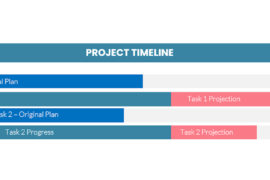 Written originally in the tech crash that followed Y2K, this article describes many of the challenges and opportunities facing the project management industry in today’s economy. The article is reposted here from its original publication in Computing Canada Magazine.
Written originally in the tech crash that followed Y2K, this article describes many of the challenges and opportunities facing the project management industry in today’s economy. The article is reposted here from its original publication in Computing Canada Magazine.
If you’re in the high-tech industry you know we’re in the middle of the largest reorganization of the industry since its inception. For years, we’ve seen waves of growth in the computing field but this is the first time ever that the pace of growth has slowed. You can argue that we’re in a temporary “correction” or a long term readjustment of growth but either way the playing field has changed.
Last year while the high-tech stocks were flying we saw a newfound interest in IT operations becoming more effective. No surprise, many of us in the industry were finding resources difficult to find and the results required by the market in terms of completed projects more plentiful. According to Admiral Ken Mattingly (You may remember him from Apollo 13 fame), “A project is an undertaking to produce a result with limited resources within a specific time”. Sound familiar?
Yes, while much of the economy is struggling with avoiding a recession, project management is on a tear. It was the same in the early 80’s when our firm got started. We were a couple of young upstart consultants who specialized in automating project management environments. It would not be until years later that we would realize how timely our entry to the industry would be. The recession of the early 80’s was very difficult for many firms but not for ours. The difficult business environment was tailor made for us to be successful. Whenever there are difficult economic times, project management leaps to the fore. It makes sense. The science of managing projects is done, after all, in order to be more efficient at producing a result. The objective is to produce more results (e.g. more projects) with the same resources or the same results with less resources (e.g. less people and money and time). Again this sounds very familiar to today’s scenarios for people in the IT field.
If you’re in a struggling dot.com then revenue growth at any cost is no longer your goal. You’re now being pressed to deliver similar results but with less cost. If you’re in a more established organization (did someone mention Telcos?) Then you’re in a squeeze too. You may have just arrived at work to find that you’re one of the lucky ones, left behind after a huge reduction in force. That means you’ll be asked to produce the same or similar results as the company has been producing only with much fewer staff.
This is a perfect call for project management.
Happily, IT has already had a big introduction to project management through the frenzy of the Y2K phenomenon. Project managers were squeezed to produce results then too but the limited resource in 1999 was time, not people or money. Still, the exercise is the same and many IT firms that I meet have been clever enough to retain an d even enhance their project management skills in the intervening time.
No matter which way you turn, if business is tight, then project management is a good choice. The benefits for firms in this situation are numerous.
- First of all, if money and time and people are restricted, then managing by result (i.e. by project) is essential. The company will be successful or not based on the projects you can complete. In the IT industry, this may be directly tied to revenue that arrives from projects that are completed. To manage by department or to just manage by guesswork and good intentions is insufficient. Managing by project will allow ineffective projects to be quickly identified and allow management the oversight to make changes when required or to provide additional support when it will make a difference.
- Once you’ve got your project management system going, you can get an almost immediate return by being able to simulate “What If” scenarios to assess the impact of different events. Without a centralized project system, you have no way of returning to management to ask for additional resources, to suggest that a project should be lowered in priority or to renegotiate deadlines
- Next, if you’ve got an established project management environment, you can get one of the biggest benefits of all; being able to assess which projects are best for your organization to take on. In the absence of a good project management system, management or marketing makes decisions about what projects should be undertaken and when they are required. If they had the analysis available from a project management system, they might find that some projects are unfeasible because they will take too long, cost too much or (most likely) will tie up key skilled resources that are already committed to other work.
- Finally, if you are facing the worst case scenario and some of your project people must be let go, then a resource-leveled project management system will enable you to determine the impact of any resources that must be cut. You can analyze resource loading from various perspectives. What would be the impact on projects of proposed cuts? What cuts would result in the least impact or what cuts would result in the impact to the least revenue-generating projects. The results of such analysis are simply not available to organizations that have not implemented project management.
Ten years ago, project management was virtually unknown in the IT industry but that’s not the case anymore. If you’re finding yourself under pressure to perform at the moment, then look to your project management group. They can’t reverse the economy on their own but they can mitigate potential damage from cuts or reductions in resources and may well spell the difference between those IT companies that survive or fail in the new economy that will emerge from the heyday of the 90’s.




